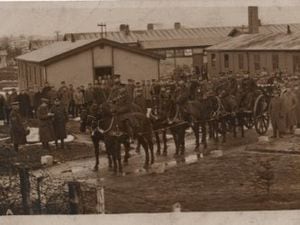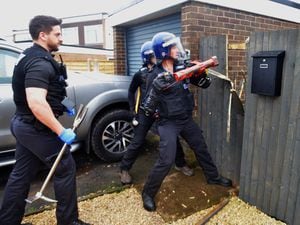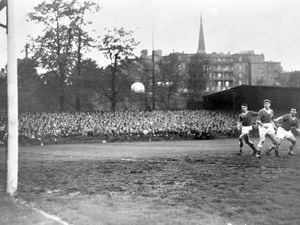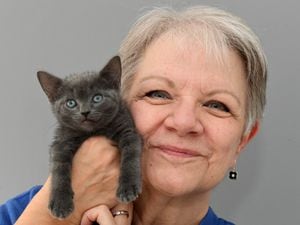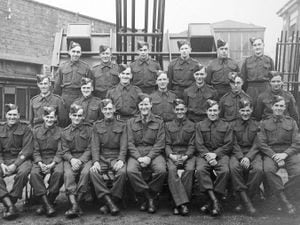The day Free French leader praised 'war-winning' Stafford workers
The face may be familiar, and the visit was historic for the town of Stafford and its war workers.
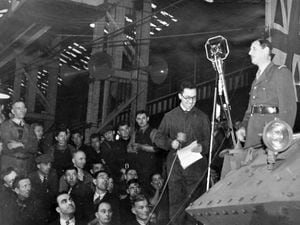
The date: Wednesday, October 22, 1941. And on the shoulders of the military man who was welcomed to the English Electric Company rested the hopes of the Free French.
He was General de Gaulle, a tank commander who had come to England after the Fall of France, becoming leader of the Free French battling on against the Nazis who had subjugated their homeland. He was destined to become one of the most famous French statesmen in history, and serve his nation as president from 1959 to 1969.
One of the wartime roles of English Electric was producing tanks, so de Gaulle would have felt at home as he took a ride in a cruiser tank on the firm's testing ground on Cannock Chase.
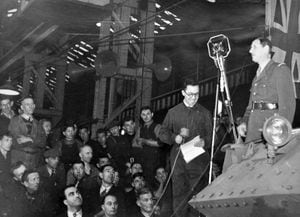
Due to wartime censorship the Star's report the following day only referred to the location vaguely as "somewhere in the Midlands." We've delved into our archives to root out the original pictures taken by our photographer that day. Only two photos were used with the report of the visit, so it's conceivable that the others have never been published.
"Before taking a trip in the tank the general toured the factory – the first he had visited in England. He showed a great interest in everything he saw, and then climbed on to the turret of a completed tank and addressed hundreds of workmen, women and girls," wrote our "special correspondent."
The report does not say whether he addressed them in French or English, but he did have an interpreter with him. De Gaulle, a noted tank expert, began by stressing the importance of having lots of tanks.
"Where will the war be won? It will be won where the greatest number of war machines and tanks are produced. It will be won here. In looking at your factories and noting the work going on, I can see where and by whom victory is being prepared.
"I know too that all the people of my country are looking to you like a drowning boy to his rescuer. The greatness of your work lies in the fact that it serves not only your own country, but also the entire world which is oppressed or menaced."
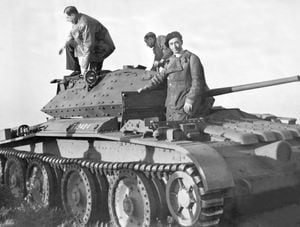
Our correspondent wrote: "The general was given a rousing cheer when he invited all the workers to come to France with their families when they had won the war. 'You will be given a great reception,' he added. 'I am going to order the tickets.'"
Which raises the question of course of whether any Stafford families took him up on his offer after the war was won.
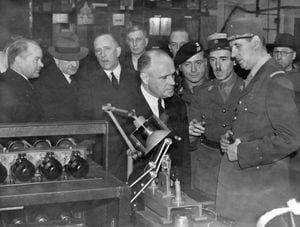
During the visit he inspected a guard of honour comprising the Home Guard, and stopped to shake hands with Lieutenant-Quartermaster J Sabin, who won the Croix de Guerre on the Somme in 1917. Inside the works he was introduced to Leslie Smith, a special constable, who also won the Croix de Guerre in 1917.
Famously, de Gaulle had a strong wartime connection with the region, as the Free French leader and his family rented Gadlas Hall, near Ellesmere, from Lord Maenan while France was under German occupation. Madame de Gaulle and her three children stayed there and she became a familiar figure in Dudleston Heath.
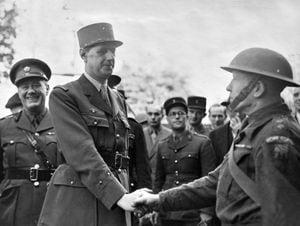
She was often joined by her husband – a local garage owner would chauffeur him from Shrewsbury railway station.
A scout hut in the grounds of Criftins School was used as a chapel and according to locals de Gaulle and his family would worship there, although some modern researchers have disputed it and in any event the hut has now disappeared.

